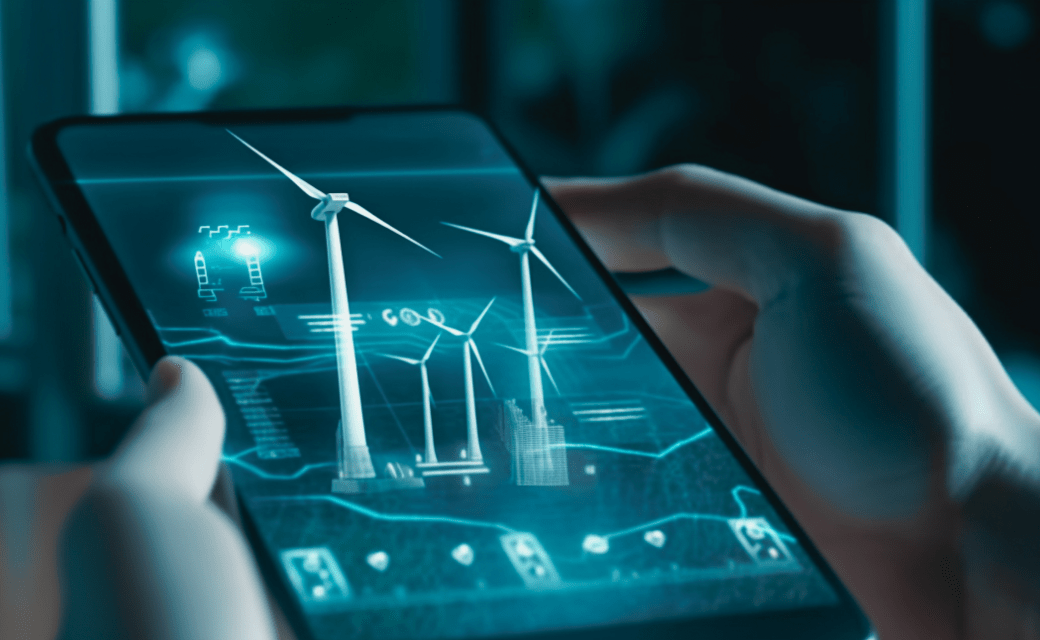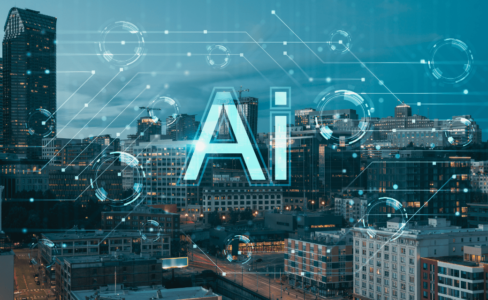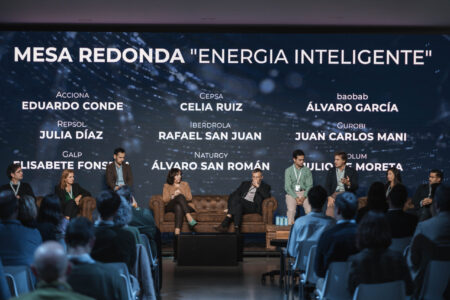The regulatory framework that puts on the table the 2030 agenda promotes an imminent transition to a more sustainable future. The link between energy efficiency and Artificial Intelligence (AI) is positioned as a promising fundamental alliance to transform the way we manage and consume energy. In this blog, we explore the synergy between these two concepts, highlighting the key role that data science plays.

A strategic duo
Energy efficiency seeks to maximize the use of energy, consuming the least amount of resources without sacrificing our quality of life, and it is for this reason that data science has become a strategic ally. According to research by the International Energy Agency (IEA) [1], the application of solutions based on data science has the potential to reduce energy consumption in buildings by up to 15% and by up to 20% in industry, simply identifying and correcting existing inefficiencies.
Optimization of energy management
The Artificial Intelligence branch of Machine Learning becomes the director of this energy optimization process. According to reports from the World Economic Forum [2], the implementation of machine learning algorithms to power grid management could reduce energy losses by up to 30%, generating significant improvements in system efficiency.
Data science as a pillar of Intelligent Energy
The success of this energy revolution is intrinsically linked to the quality of the data and the ability to interpret it [3]. Therefore, it is essential to invest in technologies for accurate data collection and efficient infrastructure for its processing. This includes sensors, communication networks and data storage systems.
In this way, collaboration between energy efficiency experts, data scientists and AI engineers becomes a key element for the development of comprehensive and scalable solutions.

Navigating towards a more efficient and sustainable future
Combining energy efficiency and Artificial intelligence backed up by concrete data is positioned as an indispensable tool in the search for sustainability. Its ability to understand, forecast and optimize energy use, and its support in decision-making, set the way to a future where energy efficiency is not just an aspiration, but a tangible reality. Data science is the guide towards a more sustainable global energy scheme, based on technological convergence, innovation and mathematical optimization in the use of resources.
References
- International Energy Agency (IEA).“Energy Efficiency 2021”.(https://www.iea.org/reports/energy-efficiency-2021)
- World Economic Forum. “Fostering Effective Energy Transition 2021”. (https://www.weforum.org/reports/fostering-effective-energy-transition-2021)
- UL Renewables – Data and Energy. Quality matters – Renewable Energy, clean energy journalism. (s.f.).UL Renewables – Data and energy. Quality matters – Renewable energies, clean energy journalism. Renewable Energy, clean energy journalism.(https://www.energias-renovables.com/ul-renovables/datos-y-energia-la-calidad-importa-20180627)
If you belong to the energy sector and want to know more or share experiences in a forum that will bring together professionals from the sector. Register now and reserve your place at the next meeting “Energía Inteligente IA y transformación digital”, which will be held in Madrid on November 28, 2023.



